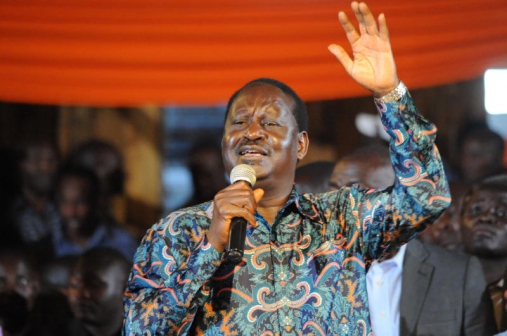
Once upon a time, the wind and the sun argued about who was stronger. On seeing a traveller, they agreed that a suitable test would be to strip him of his coat. First, the wind blew with all his might, but the more he blew, the more the man wrapped the coat tightly around himself. When the sun’s turn came, he gently beamed at the man, who loosened the coat. The sun shone brighter still, and the man threw off his coat.
Let us apply this analogy to Opposition unity. For Raila Odinga’s co-principals to take off their coats of ambition with minimal resistance, the former Prime Minister’s domineering approach will not work. This will in fact leave room for Jubilee to beam and grin suggestively at Kalonzo Musyoka, Musalia Mudavadi and Moses Wetang’ula.